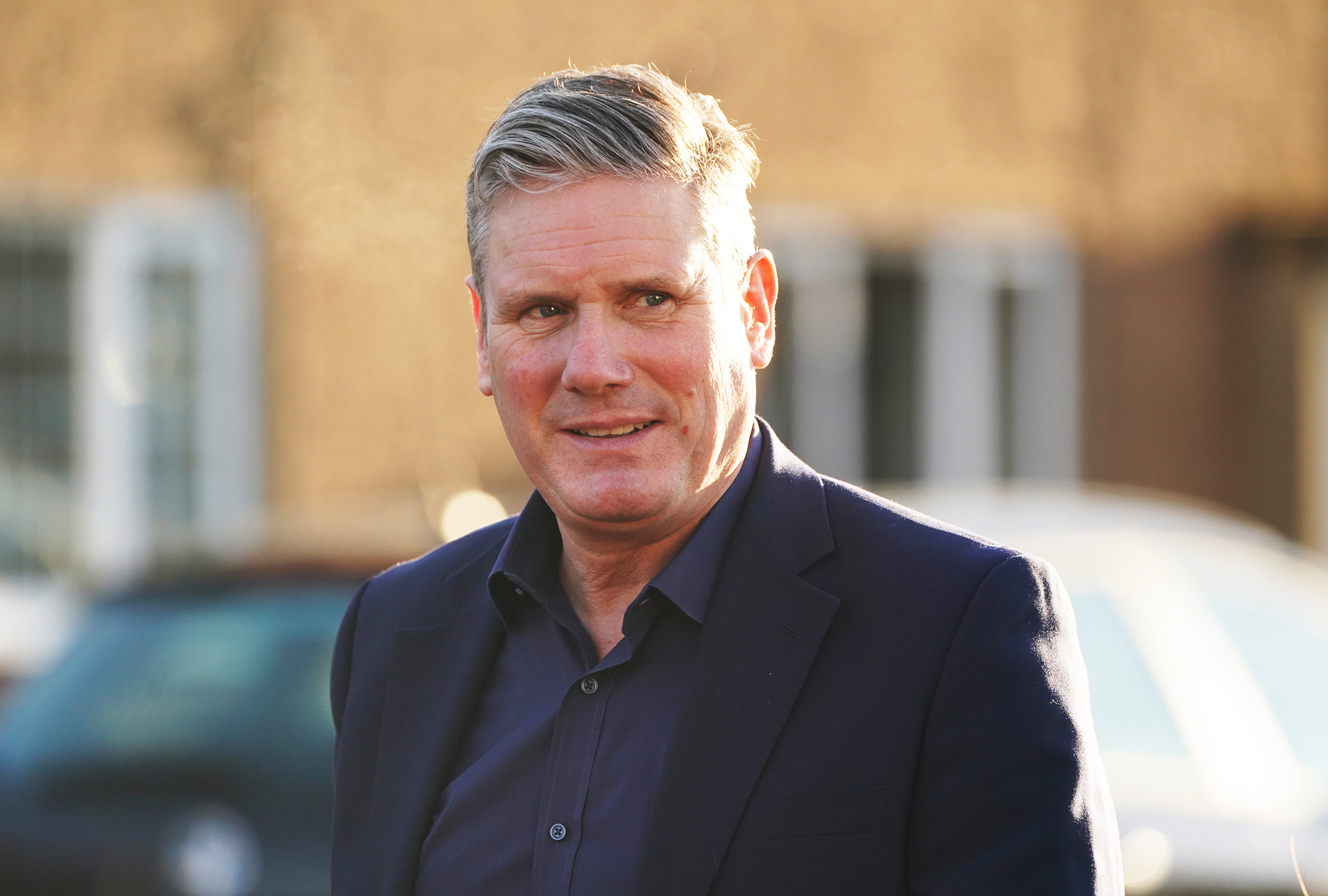Starmer sets out how he plans to beat ‘dishonest’ Johnson
Labour leader Sir Keir Starmer ruled out formal pacts with rival parties, but said he was focused on his own party’s target seats.

Your support helps us to tell the story
From reproductive rights to climate change to Big Tech, The Independent is on the ground when the story is developing. Whether it's investigating the financials of Elon Musk's pro-Trump PAC or producing our latest documentary, 'The A Word', which shines a light on the American women fighting for reproductive rights, we know how important it is to parse out the facts from the messaging.
At such a critical moment in US history, we need reporters on the ground. Your donation allows us to keep sending journalists to speak to both sides of the story.
The Independent is trusted by Americans across the entire political spectrum. And unlike many other quality news outlets, we choose not to lock Americans out of our reporting and analysis with paywalls. We believe quality journalism should be available to everyone, paid for by those who can afford it.
Your support makes all the difference.Boris Johnson is “dishonest”, Labour leader Sir Keir Starmer said as he claimed the Prime Minister was now being seen for “what he really is” by voters.
Sir Keir said “I don’t think many people believe him, I certainly don’t” over his response to the allegations about lockdown-busting Christmas parties in Downing Street.
His comments came as former prime minister David Cameron said Mr Johnson had been able to “get away with things” that he could not, including dodging media scrutiny and hiring a personal photographer at the taxpayers’ expense.
In a Times Radio interview, Sir Keir signalled that he would not enter into formal pacts with rival parties to defeat the Conservatives, but indicated he would target resources at seats most likely to vote Labour.
The Liberal Democrats picked up by-election wins from the Tories in North Shropshire and Chesham and Amersham in 2021, and are more likely to present a threat to Mr Johnson’s party in some of its southern heartlands than Labour.
Sir Keir said: “I do think we should have a Labour candidate that people can vote for wherever they live. And depriving them of that is not the right thing to do.”
But “given the size of the task that we face, given my utter determination that we are going to get this over the line at the next general election, I am very clear as to what our target seats are”.
He said the likes of North Shropshire and Chesham and Amersham were “not on my list of target seats” and “I have to sort of take an approach, given the situation we’re in, which is very clearly focused on the route for the Labour Party to win power at the next general election”.
Winning back seats in Scotland is also a key challenge for Labour if it wants to win the next election.
Sir Keir said he had to show Scottish voters that there was a “realistic prospect” of a Labour government, suggesting that many were motivated more by opposition to the Tories than deep-rooted support for the SNP and independence.
“The idea that as you cross the border into Scotland the only thing that people are concerned about is the constitutional question just isn’t my experience,” he said. “People are talking about the cost of living, they are talking about health.”
Sir Keir said he had three aims when he became Labour leader – change the party, “expose” the Government and present the Opposition as a credible alternative administration.
He added: “I don’t think after the defeat in 2019 we could look at the electorate and say ‘what’s wrong with you’, we needed to look at our party and say ‘what’s wrong with us’.”
Sir Keir said he wanted to “expose the Government for what it really is” and that was now happening “ably assisted by the Government itself”.
The Labour leader said “hard work” remained to persuade voters that his party was a government-in-waiting but “I am absolutely determined that we can do whatever is necessary between now and the next election”.
He said it was “nonsense” to say that he was not very political, adding: “To have closed the gap from -25 (in the polls) to being ahead of the Government in under two years after the worst defeat in 2019 I think shows a bit of politics.”
Sir Keir’s personal criticism of the Prime Minister – “I think he’s dishonest” – came as former premier Mr Cameron questioned Mr Johnson’s approach to the media.
The Prime Minister hired Andrew Parsons as a special adviser focused on photography – echoing a move Mr Cameron tried to make but subsequently abandoned in the face of an outcry about a vanity appointment at the taxpayers’ expense.
Mr Cameron told Sky News: “Well, Boris has always been able to get away with things that mere mortals can’t seem to.”
He says “you shouldn’t do this to bypass the media”.
Mr Cameron also criticised the Prime Minister’s decision to boycott appearances on BBC Radio 4’s flagship Today programme for a long period of his premiership – his appearance on the show in October 2021 was the first time he had been on it in two years.
The former prime minister said “I never held back from going on the Today programme”, adding “we were always available and keen to engage and to answer questions”.